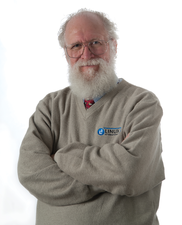Programming experience pays off
Problem Solver

"maddog" celebrates 46 years of writing code and considers what it means to be a professional programmer.
By the time you read this, I will have celebrated the 65th anniversary of my birth. I started programming in 1969, so this year makes 46 years of writing code. Many people ask me if I still write code, and I do, but mostly for my own use rather than the use of others. Of course, I also administer the computers that I use in my office and home – partly to keep up to date with things happening in the FOSS world, and partly because I enjoy it.
When I started programming, many computers were still using vacuum tubes to do the calculations, and I remember both programming a "computer" using a plug board and wires as well as building a controller for a wire-making machine out of relays. Later, core memory replaced vacuum tubes and relays for memory, and still later integrated circuits replaced core memory for power, space, cost, and heat considerations.
Recently, the BBC announced their newest design for the micro:bit – a computer that is only 4cm x 5cm and runs off batteries. The computer is so inexpensive to make that the plan is simply to give one to every seventh grader. They can then program the device through a website and download the program to the micro:bit. The intent of this initiative is not to generate millions of "professional" programmers but to help students learn how to program and (perhaps) organize their thoughts and problems so that a programmer can more easily solve the problem later. Or, perhaps the students will learn enough about simple problem-solving techniques to solve problems themselves, just as they learn to use electronic calculators and spreadsheets.
[...]
Buy this article as PDF
(incl. VAT)
Buy Linux Magazine
Subscribe to our Linux Newsletters
Find Linux and Open Source Jobs
Subscribe to our ADMIN Newsletters
Support Our Work
Linux Magazine content is made possible with support from readers like you. Please consider contributing when you’ve found an article to be beneficial.

News
-
Introducing matrixOS, an Immutable Gentoo-Based Linux Distro
It was only a matter of time before a developer decided one of the most challenging Linux distributions needed to be immutable.
-
Chaos Comes to KDE in KaOS
KaOS devs are making a major change to the distribution, and it all comes down to one system.
-
New Linux Botnet Discovered
The SSHStalker botnet uses IRC C2 to control systems via legacy Linux kernel exploits.
-
The Next Linux Kernel Turns 7.0
Linus Torvalds has announced that after Linux kernel 6.19, we'll finally reach the 7.0 iteration stage.
-
Linux From Scratch Drops SysVinit Support
LFS will no longer support SysVinit.
-
LibreOffice 26.2 Now Available
With new features, improvements, and bug fixes, LibreOffice 26.2 delivers a modern, polished office suite without compromise.
-
Linux Kernel Project Releases Project Continuity Document
What happens to Linux when there's no Linus? It's a question many of us have asked over the years, and it seems it's also on the minds of the Linux kernel project.
-
Mecha Systems Introduces Linux Handheld
Mecha Systems has revealed its Mecha Comet, a new handheld computer powered by – you guessed it – Linux.
-
MX Linux 25.1 Features Dual Init System ISO
The latest release of MX Linux caters to lovers of two different init systems and even offers instructions on how to transition.
-
Photoshop on Linux?
A developer has patched Wine so that it'll run specific versions of Photoshop that depend on Adobe Creative Cloud.
